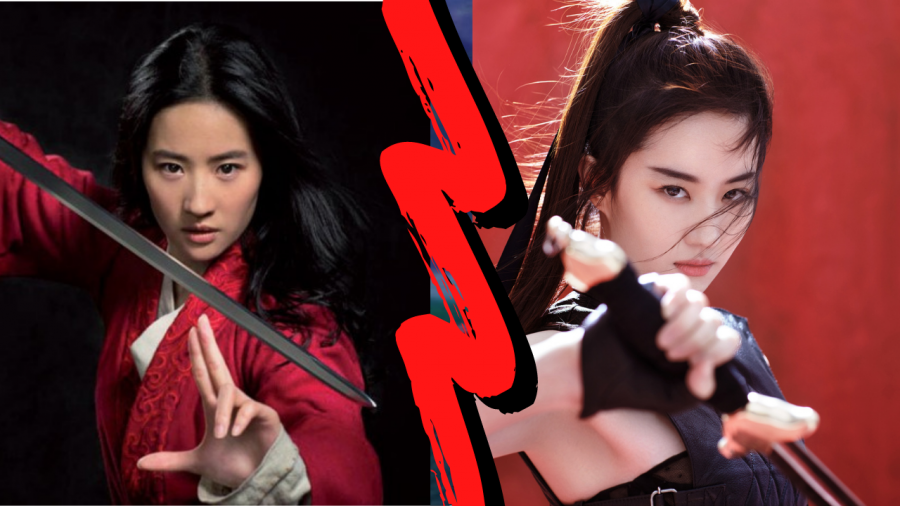Boycotting Mulan: Yes and No
You should boycott “Mulan” for the sake of everything except for the ideals of a few.
The 2020 live action production of Disney’s “Mulan” should not be shot down simply for the opinion of lead role, Liu Yifei.
Disney movie purists might relish the downward spiral that is Mulan’s live action box office release. Though boycotting this movie is valid for many reasons, it is important to remember to pick your battles because this is still show business and as much as you may want to hate this movie, there are only so many rational arguments against it, and the public comments made by Yifei, is not one of them.
The rocky start with this movie began early on in 2017 when Disney announced that, unlike their previous live action adaptations, Mulan would not be including musical numbers. Though this devastating news shocked many, the concept still had hope, at least until 2019 when Disney released their first trailer for the movie without the inclusion of Mushu, Mulan’s iconic dragon companion. Naturally, this rocked people’s world.
However, what might have been the final blow for many, including myself, was the fact that on top of your subscription fee to Disney Plus, you would have to pay an additional $29.99
to gain access to this movie. Though all this caused backlash, the true #BoycottMulan movement didn’t begin until comments made by the star of the movie, Liu Yifei, left people enraged as she declared her support of the Hong Kong authorities despite the current social climate. Protestors have been organizing demonstrations since June demanding democracy.
There are plenty of other reasons to boycott, such as Disney partnering with many Chinese institutions including four communist propaganda departments, one of which is a public security bureau in Xinjiang, a region in northwest China that is currently facilitating concentration camps. These institutions aided Disney in the creation and promotion of this movie, causing Disney to forgo many creative decisions to cater to their new audience.
It seemed for a while that everyday after its release, there was a new reason not to watch this movie. However, even though actress Liu’s comments about these situations were problematic additions to the controversial production of “Mulan,” it was not unexpected.
As a very popular actress in China, I am not surprised to see her express her devoutness to them and their systems despite their strict regime. I would not be surprised if contractually, she might have been obligated to say those things. Her comments, forced or not, surely leave a bad taste in your mouth; but this would not be the first time a big time actor has had more than questionable ethics. I can understand how her remarks might have pushed the limit too far for many but what confuses me the most was the assumptions made of the actress solely based on the fact that her character is a notorious oppression fighting symbol.
One popular tweet about #BoycottMulan by Twitter user @Foolery_s said, “how tone deaf do you have to be to support police brutality when you just filmed a character who is supposed to stand against oppression in its raw form?”
#BoycottMulan how tone deaf do you have to be to support police brutality when you just filmed a character who is supposed to stand against oppression in its raw form? Pound sand. pic.twitter.com/Ug8pfh3JPN
— Tom S. Foolery (@foolery_s) August 16, 2019
While this comment on Liu’s actions was rightfully directed, it is a little silly to expect that someone shares the values and opinions of a character they are portraying no matter how moralistically superior it is. Hollywood is a business, not a charity and certainly not a place to depend on your ideological needs being met.
Clearly, all decisions made for the production of this movie were strategic and meant to make money. I think we should all stop being so surprised when a corporation or celebrities affiliated with them prove themselves to be sellouts. As possibly Disney’s most controversial release yet, the film has many talking points, but whatever reason you chose not to watch this movie, I would advise to stop putting your faith in corporations like Disney who have shown where their priorities lay and to stop putting your faith in celebrities to take the moral high ground.



